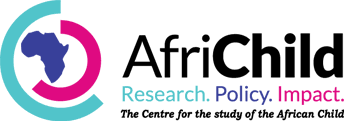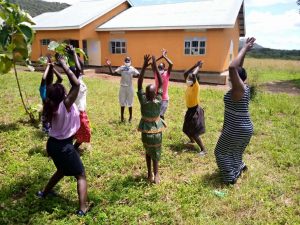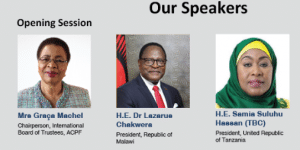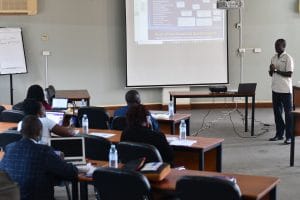The AfriChild Centre, Makerere University will conduct a scientific study to generate evidence on the effect of COVID-19 on the wellbeing of children in Uganda. The findings of the study will help inform child protection policy and practice during this and similar future pandemics in the country.
Uganda registered the first case of COVID-19 on March 21, 2020. According to Ministry of Health, the cumulative confirmed cases of COVID-19 have since increased to 953 cases by July 8, 2020 with no reported deaths.
Since March, a series of COVID-19 control measures were imposed. Some of the measures introduced include closure of all the educational institutions; suspension of communal prayers in Mosques, Churches; suspension of all public political rallies, cultural gatherings or conferences; suspension of all public passenger transport vehicles suspension of all the non-food shops (stores) and night curfew except for cargo planes, lorries, pick-ups and trains.
While a combination of these measures has been reported as essential in limiting the spread of COVID-19 they have created and continue to create additional risks for majority of the population.
Studies of the impact of COVID-19 on children have largely focused on clinical and epidemiology of the virus on children with a few paying attention to the effects of the measures of COVID-19 on children.
Even then, a lot of these studies have been done in countries, majority of whom are outside Sub Saharan Africa, particularly Italy, China and USA which have been the epicenter of the pandemic.
In Uganda, while evidence of the impact of the COVID-19 measures have barely been documented, anecdotal information gathered from the media – print, broadcast, social media – suggest that the effects of COVID-19 are evolving and affect a significant proportion of the population.
In particular, there has been a reported increase in domestic violence, gender based violence, stigmatization of persons with COVID-19, child abuse and mental health problems.
The closure of schools has affected the learning of over 15 million children who are now home. In the absence of education, which has been documented as a protective factor against violence against children, there is increased risk for children to be subjected to abuse.
Anecdotal evidence suggests that children are spending more time on line and are likely to be abused through online sexual abuse. Some districts have reported an increase in teenage pregnancy with over 60 learners between the age of 14-15 years in Luuka and Kaliro districts reported to have become pregnant during the period of lock down.
Yet, due to restricted movements, it is unclear how children in need of services are able to access them.
Drawing from a human-centred perspective therefore this study seeks to explore the effects of COVID-19 on the wellbeing of children.
The specific objectives of the study are; to document the nature and perpetrators of the cases of violence against children (VAC) in the wake of COVID-19 pandemic in Uganda; assess the effect of COVID-19 pandemic on children’s access to violence against children preventive and response services in Uganda; assess the effect of COVID-19 pandemic on children’s utilization of violence against children preventive and response services in Uganda and; to inform the child protection policy and programming process during and after this pandemic and similar future pandemics.
About AfriChild
The AfriChild Centre was established in January 2013 as a multidisciplinary research institution to bridge the gap between research, policy and practice for the wellbeing of children in Africa. Through rigorous child focused research, evidence – based knowledge building, skills development and influencing policy and practice, the Centre has continuously contributed to the wellbeing of the African child.
The Centre is promoted by 6 key players in the child wellbeing arena in Uganda i.e. ChildFund International – Uganda Office, the Ministry of Gender, Labor and Social Development (MGLSD), Makerere University, TPO Uganda, UNICEF and Columbia University.






